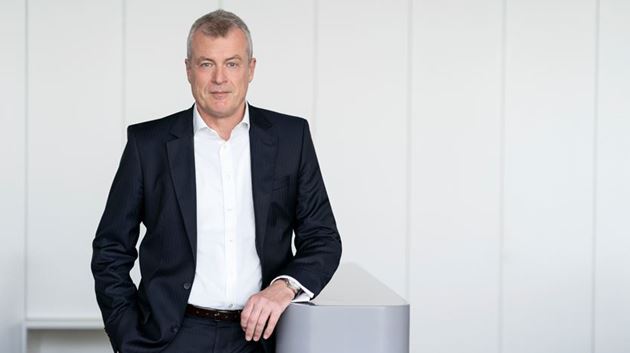Jochen Eickholt, pictured, head of turbine maker-in-a-spin Siemens Gamesa, is to quit both his post and the company this summer, the victim of restructuring operations at the manufacturer. The company’s shares rose 13% on today’s news, including on hints of generational jump in senior management and a re-jig of the firm’s commercial strategy.
Eickholt will step down on 31 July and leave the company on 30 September, the parent company Siemens Energy announced this morning. He was appointed the turbine maker’s head only in April 2022, with a brief to reverse cost over-runs and to repair fractured supply chains.
Replacing the 62 year old will be Vinod Philip, 50, head of global functions at Siemens Energy. Philip currently oversees a palette of functions including IT, purchasing, innovation, logistics and project management.
Today’s announcement by the parent makes no mention of Tim Dawidowsky, appointed as Siemens-Gamesa’s chief operating officer in 2022, within two months of Eickholt’s arrival.
Under the pair’s tenure, Siemens Gamesa has continued to struggle with quality issues and sustained financial losses. Siemens Energy CEO Christian Bruch today absolved Eickholt from blame for the former, declaring that “the causes of the quality problems did not fall under his tenure”.
Bruch said that Eickholt’s departure was part of the company’s multi-year restructuring plan as “the time has now come for a generational change at Siemens Gamesa”.
Continuing losses at the turbines division dictates the sharpening of strategy identified in today’s overhaul. While continuing to make larger maritime structures, it will now target developers and generators operating onshore farms in stable regulatory environments, chiefly in Europe and the US. Break-even by 2026 is the financial goal, to be followed by profit margins topping 10% at an unspecified date.
Although its plan meentions unspecified job cuts, the parent Siemens Energy reaffirmed its commitment to both maritime and onshore turbines, allaying concerns of potential divestment or closure of wind business segments.
The parent confirmed that coastal factories making maritime – and thus bigger – turbines in Cuxhaven, Aalborg and Le Havre will continue to ramp up their capacities, a move the parent sees as essential.
Continuing disruptions to production and resulting flaws led to financial setbacks for Siemens Gamesa in 2023, including a loss of €4.6bn (£3.94bn). At the time, Bruch said: “The strong performance of our other business areas gives me confidence in our company’s ability to put businesses back on a strong footing.”
Siemens Energy’s shares surged 13% on today’s announcement. At group level, it declared expectations of better profit margins, and adjusting its 2024 projections for sales to rise as much 12% during the year.




